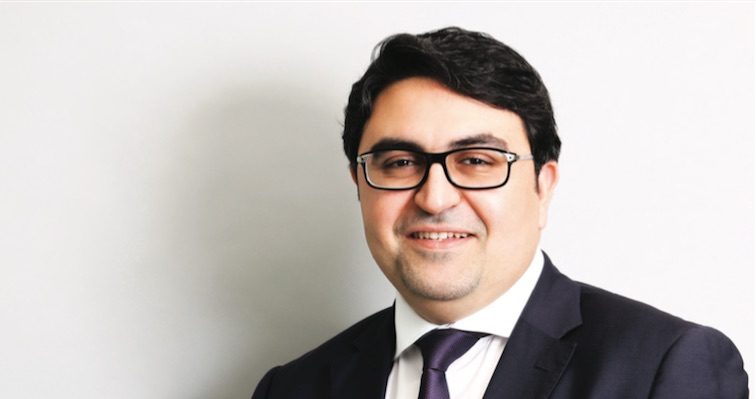Credit Bureau: Towards a new generation of services
Translated version of the interview with Sidimohamed Abouchikhi, CEO of Creditinfo Morocco.
Image credit: Finance News.
Interview by Momar Diao
At the global level, Credit offices are open to any kind of information to assess the risk of a customer. Which is not the case yet for the Morocco. Elsewhere, data telecom operators, water and electricity suppliers give financial institutions the opportunity to better understand their customers.
Finance News weekly: How did Creditinfo Morocco perform during the first quarter of 2019? And what are your projections for the year 2019?
Sidi Abouchikhi: As we already announced previously, the number of consultations by the Credit Bureau has surpassed 2.5 million in 2018 and this upward trend continued for the first quarter of the year 2019 in alignment with our forecast.
Regarding value-added services, we recorded a high demand on our services of Monitoring, Alerting and Scoring. This trend is a reflection of the actions carried out by the financial sector to “air out” its portfolio of credits for more of risk management and to comply with regulatory, increasingly strict prerogatives with the IFRS 9 standard which came into application recently.
In terms of strategy, we note that institutions implement transformation programs in the areas of Risk management, which is likely to increase their appetites for the use of the ‘Big data’. Rightly, Creditinfo continues to support the financial system through innovative services and solutions of digitalization able to support these transformations.
F.N.H.: In Morocco, credit bureau activities are open to the water, electricity sector and the Telecom and insurance sectors. What does this mean concretely?
S.A.: The integration of this kind of so-called alternative data fits into the process of natural evolution to a Credit Bureau. At the global level, Credits offices are open to any kind of information to assess the risk of a customer. This is the case for Creditinfo that manages this data in its Credit offices in Europe, the Middle East and Africa.
For example, in West Africa, data telecom operators and suppliers of water and electricity give financial institutions the opportunity to better locate their clients in a more relevant manner, regardless of the timing .i.e: at the beginning of the granting credit or during its collection.
In Morocco, the integration of such data is a real opportunity to develop a new generation of financial products and services and, consequently, to increase financial inclusion to a large section of the population that accesses, or in a very limited way, to financing, without forgetting the TPE which are today at the heart of all policies public development and require, too, a fundraising effort on the part of the financial system by more suitable products.
F.N.H.: Is Creditinfo, today, equipped and endowed with the necessary expertise to accompany the above sectors?
S.A: As a global leader in the sector, we manage the data in 20 of our Credit offices worldwide. This kind of data is considered to be classic, despite its novelty in some countries. Creditinfo has tech solutions and proven expertise to manage data of Telecom operators and water and electricity suppliers as well as data from financial systems.
In other markets, Creditinfo uses a new generation mobile data as the metadata for mobile phones. The idea is to capture the maximum possible information to enable the creation of models with more power and predictive algorithms, paving the way for a more automated process of granting credit, cost reduction for promotion of financial inclusion.
F.N.H.: Finally, how do you manage customer risk at the level of banks and micro-credit associations?
S.A.: The culture of risk management is well established in the Moroccan banking system. Thanks to devices that control risk, the banking system is backed by rating agencies, demonstrating its resilience and ability to adapt to changes imposed by the transformation in digitization and regulation. The risk trend remains stable without significant deterioration throughout the first quarter of the year 2019. For micro-credit associations, the overall trend of risk has improved following the adoption of the report of solvency and scores provided by Creditinfo.
However, the increase in the threshold of 150.000 DH funding is to push microcredit associations to transform and equip themselves with solutions that enable a better knowledge and assessment of the customer and better management of the cycle life of the credit.





